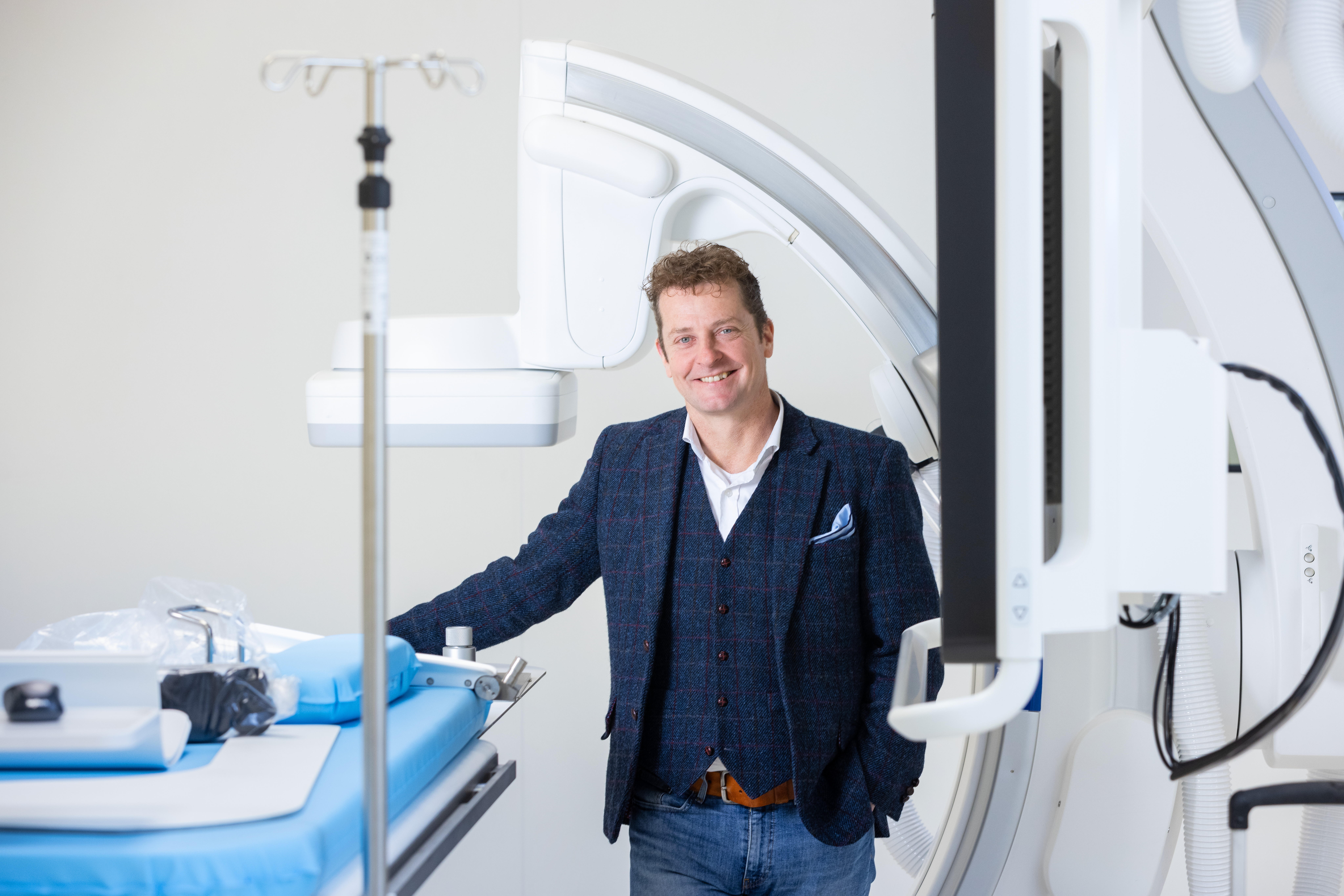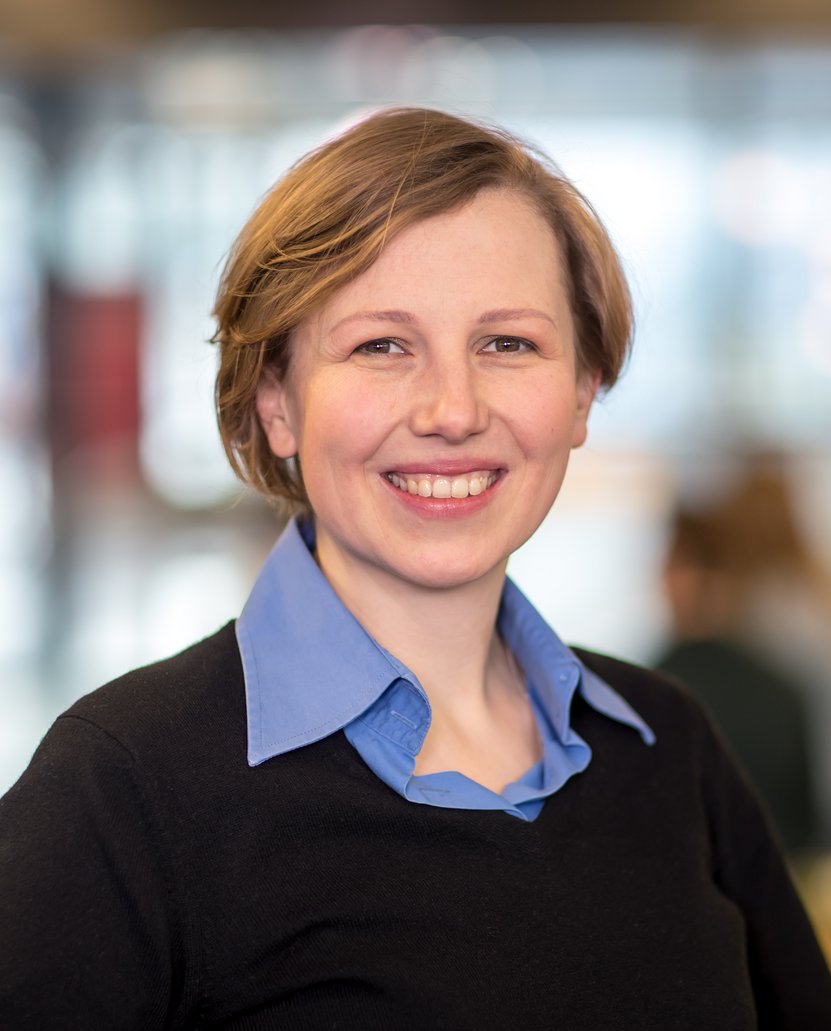Artificial Intelligence to help look after patients with dementia
Caring for elderly patients with dementia involves an ecosystem of caregivers… and technological solutions? Technology can help patients stay independent while keeping doctors informed, says Dr. Stelios Asteriadis. Over the next 3 years, he and his team will join forces with 13 European partners to realize this vision within the EU-funded project PROCare4Life.
“We are trying to close the communication loop in healthcare by involving the right people in sharing the right information”, says Dr. Asteriadis . “Our goal is to help patients communicate with their doctors and assist them in living independently.” Part of this aid will come in the form of technology, which is set to gather data to be interpreted by state-of-the-art Artificial Intelligence.
Dr. Asteriadis: “Imagine sensors that measure how well somebody with Parkinson’s Disease walks, or how confused someone with Alzheimer’s Disease feels. This information goes to their doctor or caregiver.” The PROCARE4Life platform intends to provide live feedback: emergencies like a fall or a dangerously high heart rate instantly alert doctors so they can spring into action.
Empowering patients
However, PROCare4Life doesn’t only target caregivers. The project intends to provide information to patients as well. “We want to empower patients by giving them feedback about their own status”, Dr. Asteriadis explains. “How are they doing? What can they do to adopt healthier habits? Our platform may remind them of their doctor’s advice, for example, or suggest cognitive games to play. Such games are proven to be very helpful for Alzheimer’s patients.”
Artificial Intelligence for personalized care
Within PROCare4Life, each of the 14 consortium partners brings their own expertise to the table. Maastricht University will focus on Artificial Intelligence (AI) for activity recognition. However, having a machine recognize what someone is doing is challenging. It becomes even more difficult when the machine has to draw conclusions based on those observations and give a verdict about someone’s wellbeing. Dr. Asteriadis: “What is normal for you may not be normal for me. To circumvent that problem, we will build AI-driven models of behaviour and activity that take people’s individual habits and health status into account.”
“We will also work on uniting data from different sources and of different types. Think about combining information about an individual’s health with data about demographics, their medication use, activities and performance in cognitive games. We bring all of that together, and the outcome bounces back to the summary of how an individual patient is doing.”
Building on previous experience
Dr. Asteriadis and his team were previously part of ICT4Life, an EU-funded project that implemented integrated care solutions at a smaller scale. The tools developed within ICT4Life were successfully tested in Hungary, Spain and France.
“The difference with previous initiatives like ICT4Life – from which we will use a lot of knowhow – is that we want to reach more patients in more countries across Europe. The ultimate goal is to include 1500 patients, who will test different parts of our technologies. We will be able to use more dedicated human behavior analysis sensors thanks to partnerships with industries active in ICT for the monitoring of physical wellbeing. This time around, the focus is also much more on user empowerment.”

Stelios Asteriadis (top) is associate professor at the Department of Data Science and Knowledge Engineering, where he coordinates the Affective & Visual Computing Lab (AVCL). AVCL researchers Esam Ghaleb (middle) and Bulat Khaertdinov (bottom) are also part of PROCare4Life.
PROCare4Life will run up to and including 31 December 2022. The Innovation Action is funded by a Horizon 2020 grant from the European Union and includes 14 partners throughout Europe.
Further reading
Read more about PROCare4Life
DKE Affective and Visual Computing Lab
The ultimate goal is to include 1500 patients.
Dr. Stelios Asteriadis
Also read
-
Lee Bouwman, a vascular surgeon and endowed professor of Clinical Engineering, specialises in the implementation of groundbreaking healthcare technologies. The key to success, he says, lies in the collaboration between engineers and clinicians. This approach has already resulted in a range of...
-
Researchers from across the world have mapped the genetic relationships of the majority of flowering plant genera. Maastricht University helped with this massive effort, which completes the evolutionary tree of life of plants like never before. The famous scientific journal Nature published their...
-
On April 19, during her inaugural lecture, Anna Wilbik explained how we can squeeze out the whole potential of data to the last drop.



